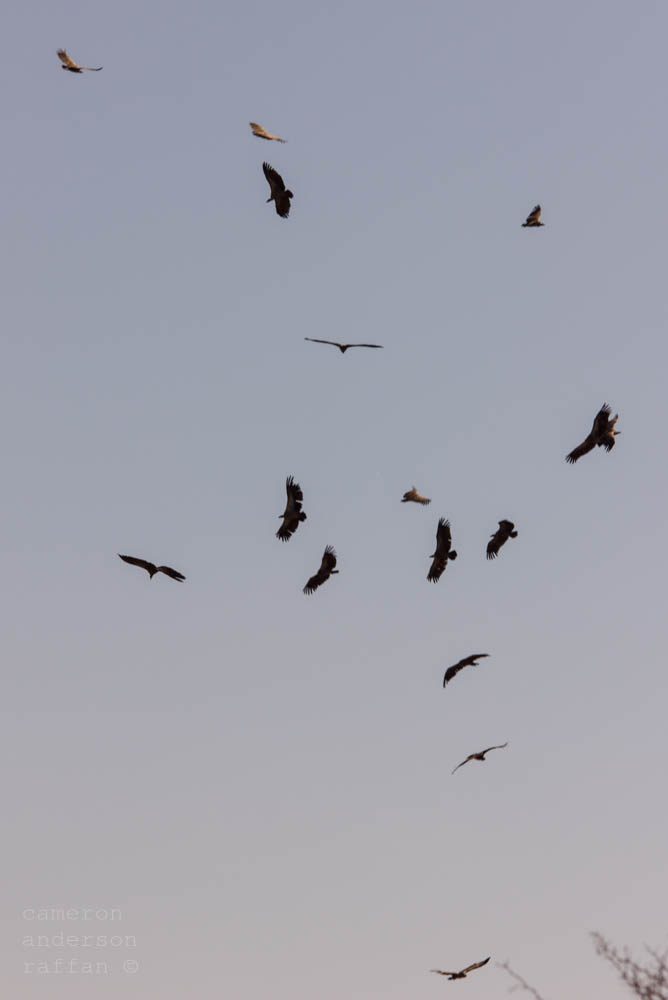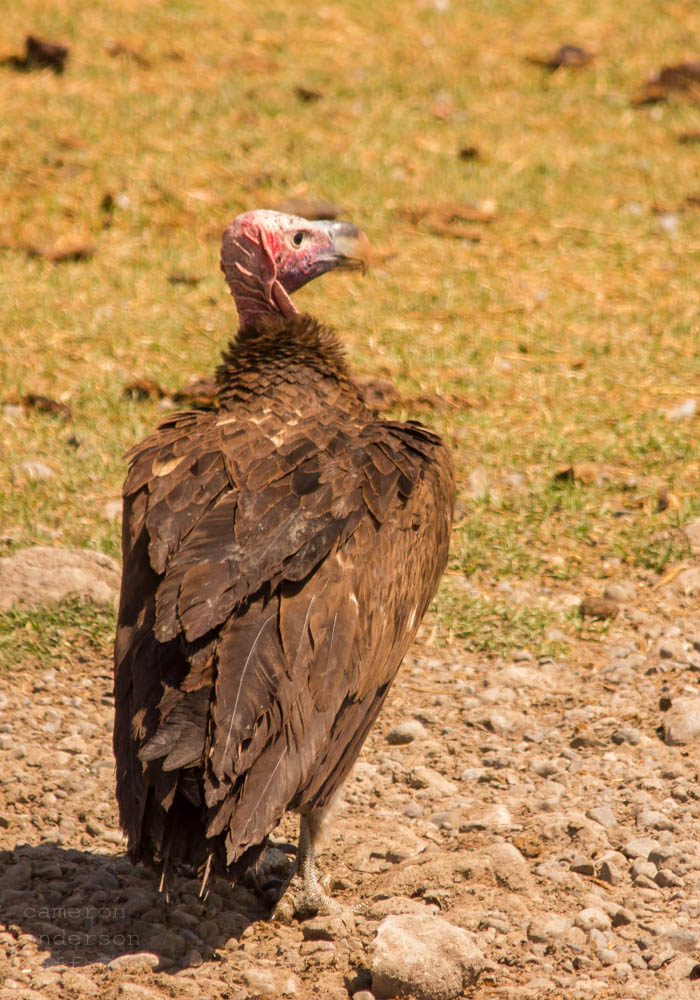The Vulture has never really been at the forefront of our favourite species amongst African avian varieties, they come with a lot of negative connotations....most commonly someone known for benefitting from another’s misfortune is considered to be a vulture in modern society.

A White-backed Vulture salivates at the thought of some fresh meat
But these ancient creatures serve a very specific and fundamental niche in the animal kingdom. They are very much the undertakers, cleaning the land of rotting flesh that can very easily spread disease throughout. Without them an animal carcass would take far longer to be found and thus decompose slowly. They are capable of cleaning a carcass in a matter of hours if there are enough of them.

A flock of White-backed Vultures ascend as we approach
These great birds have evolved within their niche of scavenging to each serve a more specific niche. For instance we can look at the most commonly seen species here in the Selous, the giant Lappet-faced Vulture will be the one to open up the carcass using its powerful bill, and it will then generally dominate the carcass as it is more aggressive than the others. The White-back Vulture is the classic African Vulture who descend the heavens hopefully in large numbers and will clean a carcass down to skin and bone, each one filling their crops in a matter of minutes, Then we have the Hooded Vulture who uses its delicate bill to finish off the scraps on the bones.

A Hooded Vulture away from the main carcass has found a bone with some meat to peck at
Vultures are a guide's best friend as they very much indicate the activity of predators, so if your guide sees a lot of vultures you know you will be finding some evidence of the great carnivores that you have come to Africa to see. The locate food using their impeccable eyesight, they fly at incredible heights covering many hundreds of miles a day in search of food and when one vulture drops out the sky all the others will see and follow suite.

A mixed group of White-backed and Lappet-faced Vultures spiral up in a thermal.
But with the current poaching crises of Africa, the vultures traits are not being appreciated by such poachers as they will give away poaching activity to rangers and conservationists. Poachers use poison, quite often something as simple as diclofenac, to booby trap a carcass and kill of hundreds of vultures at a time. Putting vultures populations under increasing pressure and forcing some of them into a vulnerable state. Without vultures performing their crucial duty who knows what will come of the land and spreading disease.

A Lappet-faced Vulture shows off its powerful bill used to break the tough animal hide.
So next time you see these formidable creatures please pay tribute to the duty they perform that no other creature can on such a massive scale.
